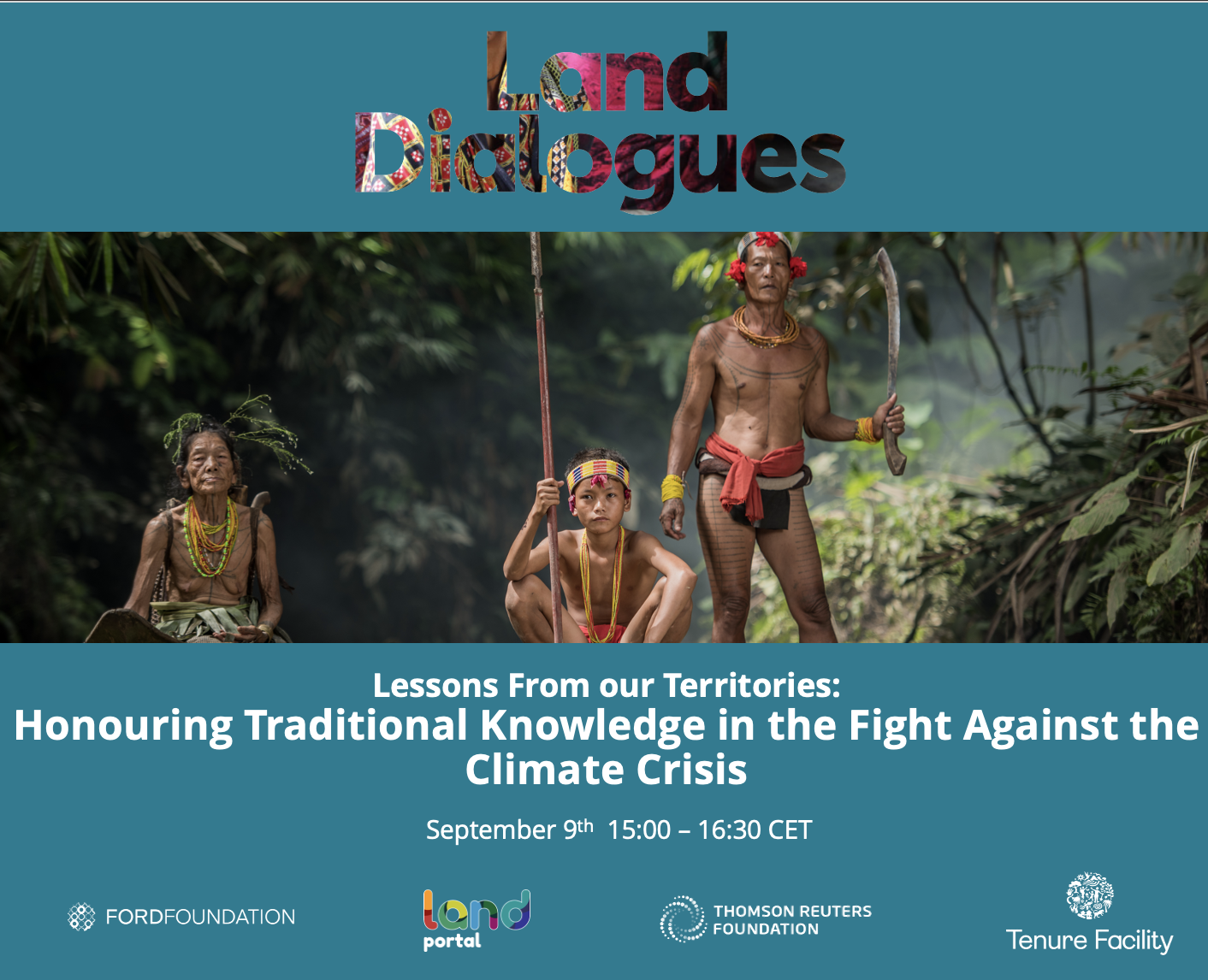
Organisers: The Tenure Facility, Land Portal Foundation, Ford Foundation and the Thomson Reuters Foundation
When: September 9th 2021 at 9:00AM-10:30AM EST (15:00 PM– 16:30 PM CET)
Where: online, please register here.
Local and indigenous knowledge refers to the understandings, skills and philosophies developed by societies with long histories of interaction with their natural surroundings. For rural and Indigenous Peoples, local knowledge informs decision-making about fundamental aspects of day-to-day life. Traditional knowledge plays a critical role in protecting the planet’s biodiversity and for maintaining the overall health of ecosystems. For Indigenous Peoples, their knowledge of plants, animals, microorganisms, ecosystem management, among others, is essential in conserving and using biodiversity, food, their health needs and practicing their sacred rituals and ceremonies.
While Indigenous Peoples and local communities’ traditional knowledge provides a key for successful local level adaptation and advice on sustainable mitigation activities, traditional knowledge is threatened as younger generations of Indigenous Peoples and local communities are seeking alternative ways of life, moving to urban areas for higher education and job opportunities. The maintenance and transmission of traditional knowledge depends on the sophisticated sets of understandings, interpretations and meanings that are communicated through indigenous languages.
The global pandemic adds another threat dimension, as many Elders have passed away in the last 18 months and with them a generation of knowledge has been lost. As we will hear during this webinar however, COVID-19 has also created an opportunity for young indigenous men and women to go back to their communities. They have thus found themselves in safer and more nurturing environments than in the urban habitats, which opens up a portal for the transfer of knowledge to youth.
We can not solve a problem using the same mindset and framework which created it. We need to expand our horizons,decolonize knowledge and be open to new ways of learning in order to tackle the biggest problem of our century, climate crisis. Join us for this webinar to discuss this and more!